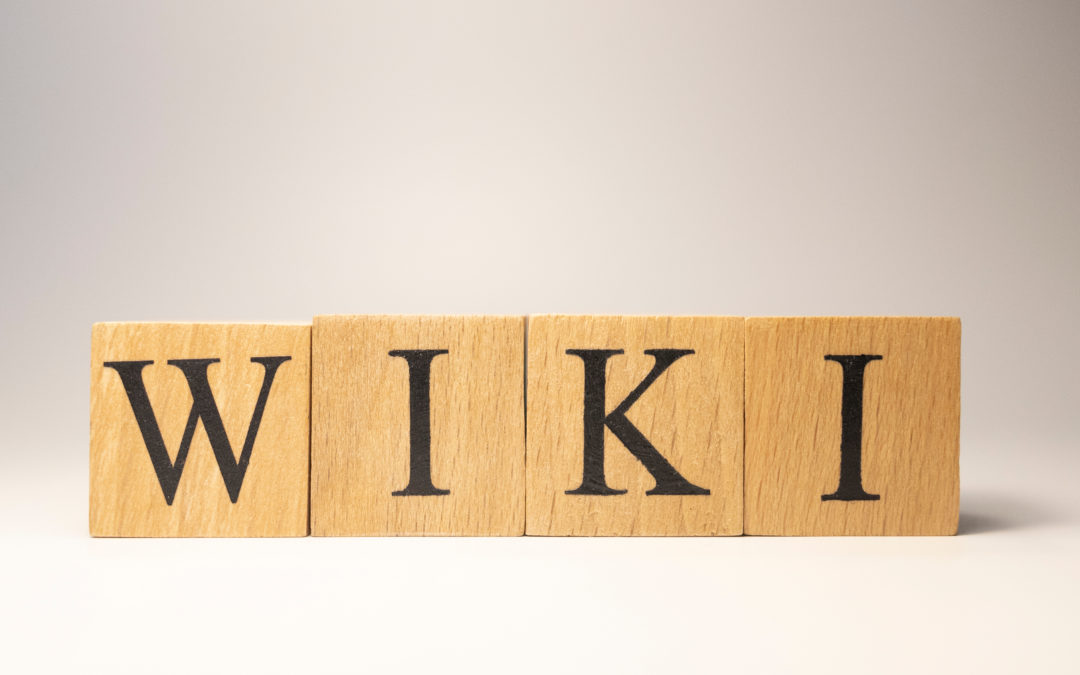Since 2001, Wikipedia has grown to become the world’s go-to encyclopedia of online knowledge. With more than 55 million articles in 309 languages (6.4 million in English alone) it’s hard to look up anything these days and not immediately find a relevant Wikipedia entry at or near the top of the search results. With this obvious influence, it’s easy to see why executives are so drawn to having a Wikipedia presence for themselves and their organizations. After all, since everything on Wikipedia is created and edited by users, how hard could it be to write up a glowing bio or company history and hit publish? Unfortunately, it’s not as easy as it sounds.
While Wikipedia was founded “to create a world in which everyone can freely share in the sum of all knowledge,” building a presence and keeping it updated is anything but a do-it-yourself project. Here are five important things to know:
It’s a Community
Wikipedia is a lot like the Wild West—an ever-expanding terrain with an evolving set of laws enforced by a posse of more than 100,000 volunteer editors with a language, set of norms and culture all their own. They comb through the millions of articles with one goal—to continually expand and perfect Wikipedia’s digital record. Newcomers who dive in without first taking time to fully understand the complex rules and customs do so at their own peril. For example, something as simple as referring to an encyclopedic entry in Wikipedia as a “page” instead of an “article” can be a red flag for other users that someone is new to the community and virtually guarantee that anything they do will be viewed with suspicion and receive careful scrutiny.
There’s a Bar
Despite appearances, not everything is considered worthy of inclusion. Notability is the test editors use to determine if a subject deserves its own article on Wikipedia. To pass, the subject must have received significant coverage from reliable, published sources. These sources must be entirely independent of the subject, which means that autobiographies and information from company publications, websites and press releases don’t count. Coverage by credible media outlets is the gold standard, although court records, books, peer-reviewed articles and similar verifiable sources may also qualify. An article that isn’t properly sourced and cited is likely to be quickly marked for deletion, and the submitter tagged for scrutiny as well.
It’s Like Switzerland
Wikipedia’s mission is to present a “neutrally written summary of existing mainstream knowledge in a fair and accurate manner.” It’s an encyclopedia, not a soapbox or vanity press. To maintain this neutral point of view, Wikipedia articles are expected to cover the good and the bad without bias toward one or the other. This is one of the many reasons why users are strongly discouraged from creating or editing articles about themselves, their employer, or any topic in which they may be seen as biased. This so important to the Wikipedia community that it has its own name, COI (conflict of interest) editing.
Just Because You Can, Doesn’t Mean You Should
While Wikipedia’s voluminous rules don’t expressly outlaw COI editing, they do require users to be completely transparent about any relationships or interests, financial or otherwise, that could bias their writing or editing. Disclosure may seem like a safe harbor, but that’s not always the case. Some editors interpret Wikipedia’s guidelines more strictly than others, so seemingly minor edits made in broad daylight and with full disclosure of any potential conflicts are subject to being reversed as a matter of principle.
The editor could also tag the article with a warning that it may have been submitted or edited by someone with a conflict or, worse, in return for undisclosed payments—not a good look for a person or company that values their reputation. One approach that is considered acceptable, however, is to request factual changes to an existing article in its “talk” page in the hope that a disinterested editor will deem them worthwhile and make them. This can be a very lengthy process with no guarantee that an editor will even take up the request or that any edits they make won’t later be reversed.
Be Careful What You Wish For
It’s easy to see the allure of having a Wikipedia presence for online reputation and SEO. However, those with past reputational challenges that have since faded from view should tread carefully; a new article may very well do more harm than good. Editors are quick to descend on newly published articles to make sure that they present a full and unbiased picture of the subject. Organizations need to think carefully about whether the downsides of being absent from Wikipedia outweigh the danger of bringing long-forgotten lawsuits, regulatory problems or executive misbehavior back to light atop page one of Google.
So, What Does This Mean?
Wikipedia’s power to enhance online reputation and search engine results is beyond question. But, so too is its ability to cause highly visible and long-lasting reputational damage if handled incorrectly. Maintaining a healthy respect for the rules and culture and seeking out an experienced guide to help you avoid missteps can make all the difference in the world.


Recent Comments